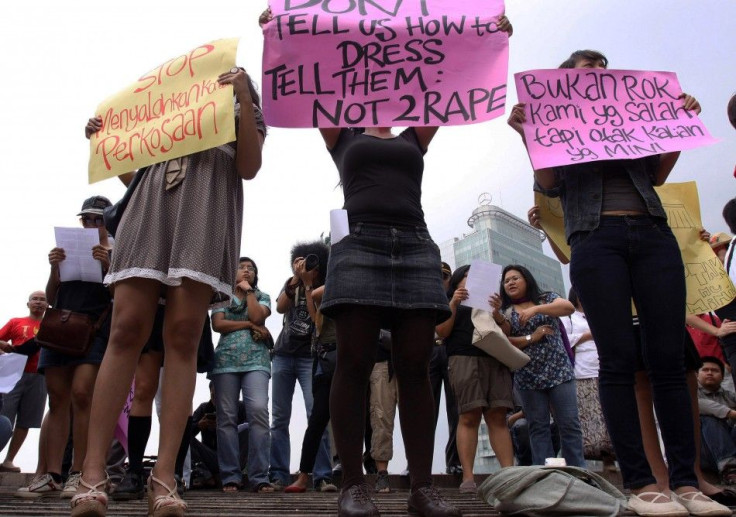Women Wearing Provocative Clothing Leads to Rape: Indonesian Governor

Women in Indonesia are outraged by comments made by a government official that wearing provocative clothing can lead to incidence of rape.
According to the Jakarta Post newspaper, about fifty women adorned in mini-skirts staged a rally in Central Jakarta after Fauzi Bowo, the Jakarta governor, said that wearing revealing clothing, particularly on public transportation, can make women vulnerable to sexual assaults.
The women chanted or carried placards with slogans like “Don't Tell Us How to Dress, But Tell Them Not to Rape” and “My Mini Skirt, My Right.”
We are here to express our anger. Instead of giving heavy punishment to the rapists, the governor blamed it on women's dress. This is discrimination, protest coordinator Chika Noya told Agence France Presse.
The controversy erupted after a female student at Binus University in Jakarta was gang-raped on public minivan and later killed by her attackers.
Fauzi has since apologized for his inflammatory remarks by saying “I apologize because my earlier statement was very prone to misinterpretation.”
However, Faiza Mardzoeki, spokeswoman of the Alliance of Women Rejecting Rape, who participated in the protest, told the paper: “We feel threatened by the words of public officials regarding miniskirts. They should be giving responses that protect rape victims. This is a lesson for all public officials in the country. Don’t ever blame women and discriminate on the way we are dressed in a rape case.”
She added: “It’s not the fault of what we wear; rapists have a mental disorder. Instead of blaming what women wear, the government is supposed to provide security especially on public transportation.”
Nia Dinata, a film director who also took part in the rally, told reporters: “The level of education of men will determine how they respect women, no matter what we wear. A good man who respects his mother must be able to respect other women. I guess Fauzi Bowo doesn’t.”
According to the Indonesia’s National Commission for Women's Affairs, more than 100,000 cases of violence against women have been reported this year, about 4,000 of which involved rape.
Indonesia is a huge, teeming Muslim country which is rapidly accelerating its economy, placing great strains on traditional modes of behavior. A group called Islamic Defenders Front has been known to publicly attack women whom they think are wearing inappropriate clothing.
Amnesty International has highlighted the problems of discrimination faced by Indonesian women.
Salil Shetty, Amnesty International’s Secretary General said in a statement: “While the government has pledged to enhance gender equality, many Indonesian women still struggle for fair and equal treatment. A combination of unchallenged social attitudes, unfair laws and stereotyped gender roles often relegate women to second-class status.”
The Amnesty official added that the Indonesian government: “is failing to ensure that survivors of rape can have access to health information and services. Although abortion is legally available to women and girls who become pregnant as a result of rape, this fact is not well known, even amongst health workers, and victims of rape can face significant obstacles to accessing safe abortion services.”
© Copyright IBTimes 2025. All rights reserved.





















